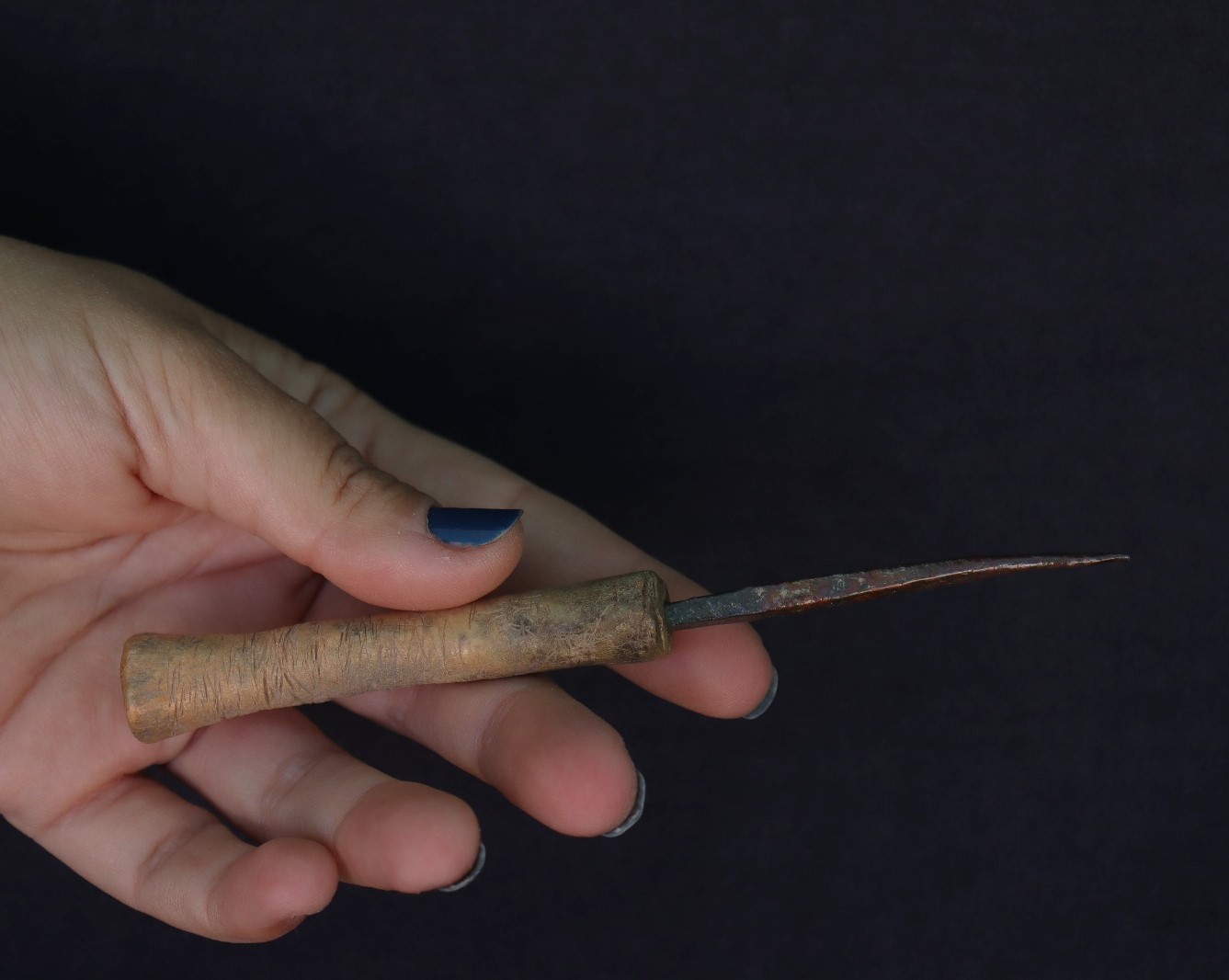
Archaeological excavations at Tavsanli Hoyuk (Mound), located in Türkiye’s Kutahya province, have unearthed a bronze awl with a bone handle and a pair of tweezers, both dating back 3,200 years.
These findings, meticulously preserved, provide invaluable insights into the Bronze Age lifestyle and craftsmanship.
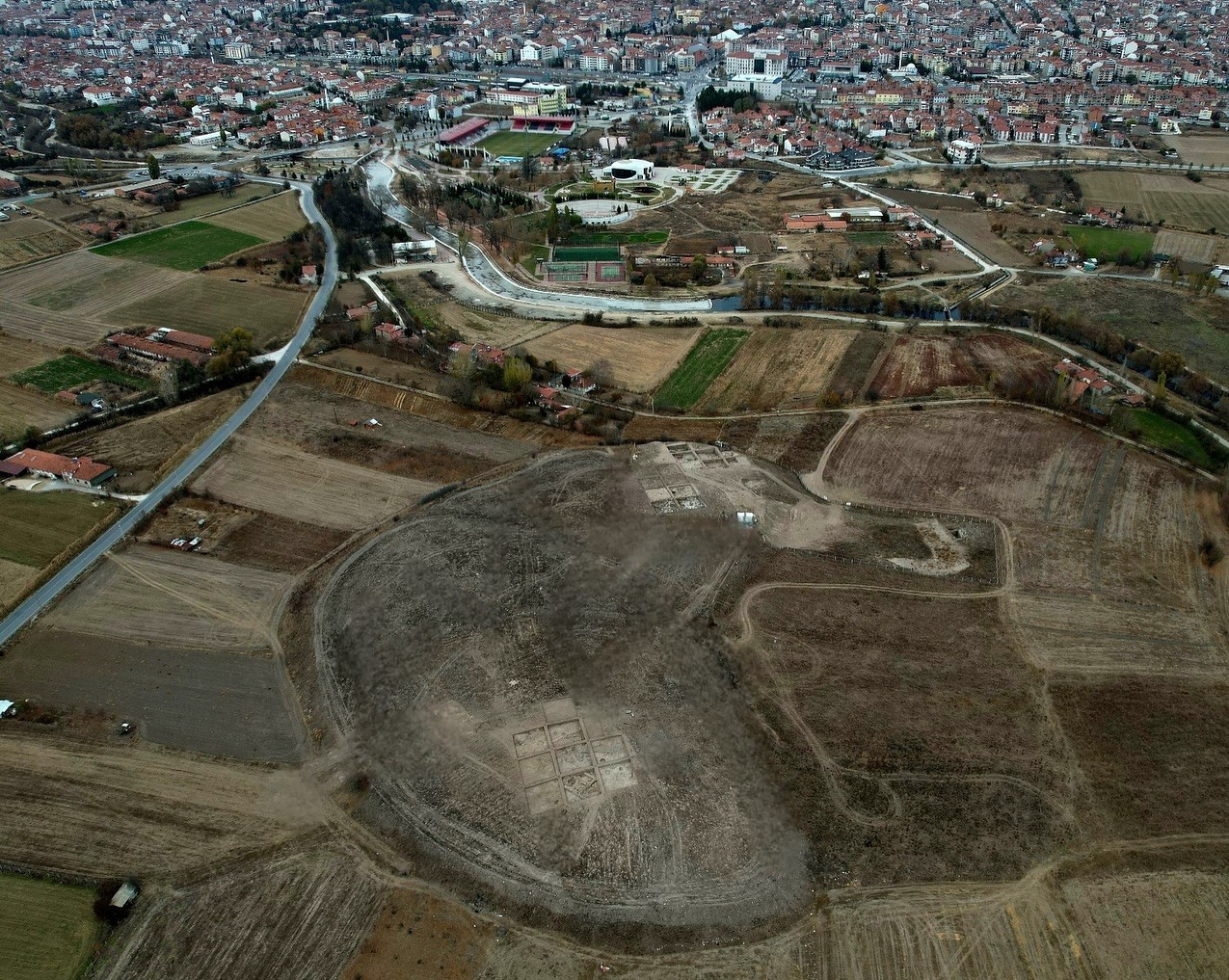
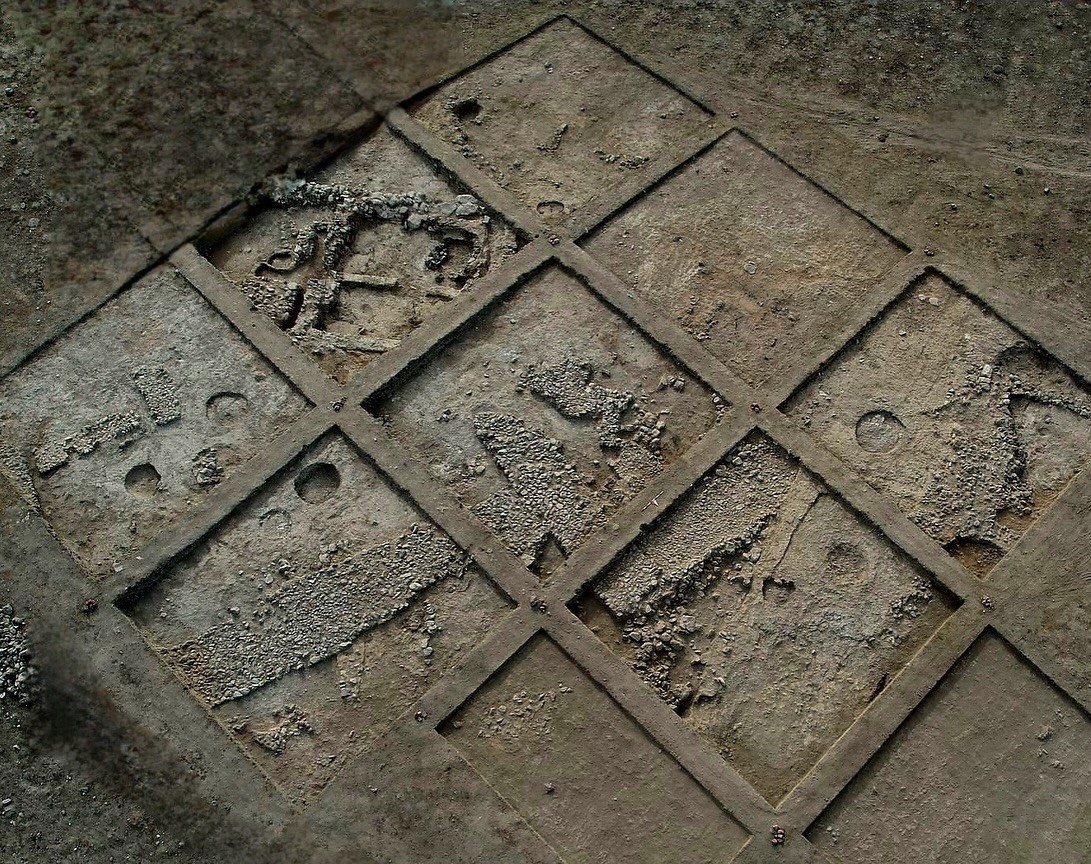
Overseen by Professor Erkan Fidan, chair of the archaeology department at Bilecik Seyh Edebali University, the Tavsanli Hoyuk excavation is known as the "Heart of Kutahya" due to its heart-shaped appearance in aerial photographs.
The site has yielded nearly 400 artifacts since work began in May, enriching the archaeological heritage of inner western Anatolia.
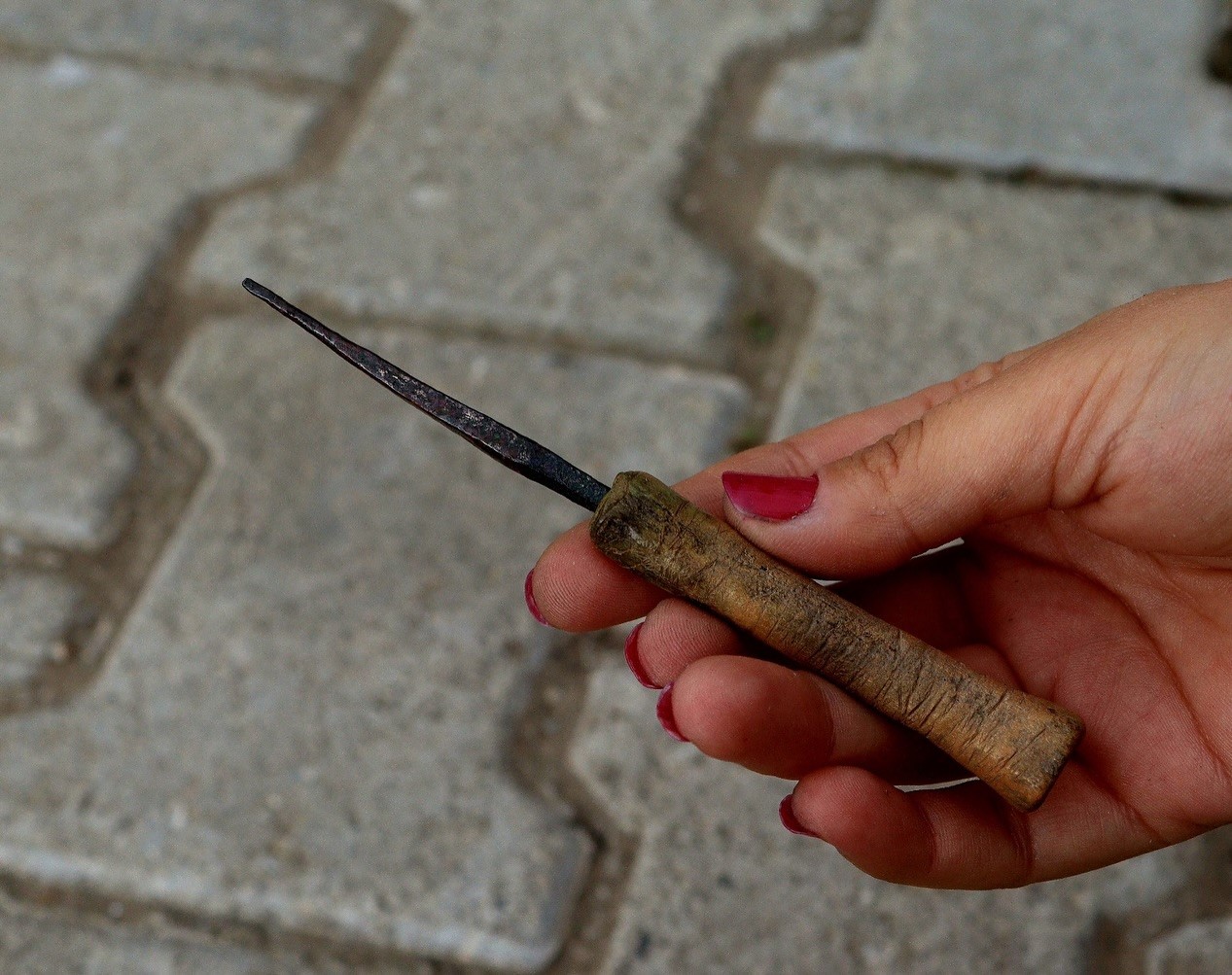
Recent discoveries include a bronze awl with a bone handle, found among the remains of an ancient workshop from the Hittite Imperial Period and the Late Bronze Age. This tool, exceptionally well-preserved, is believed to have been used in leatherworking.
Additionally, a bull-shaped stone pendant, smaller than a fingernail, was unearthed within a special structure in the same layer. The pendant, featuring horn-shaped loops for threading, is thought to hold religious significance tied to Hittite beliefs.
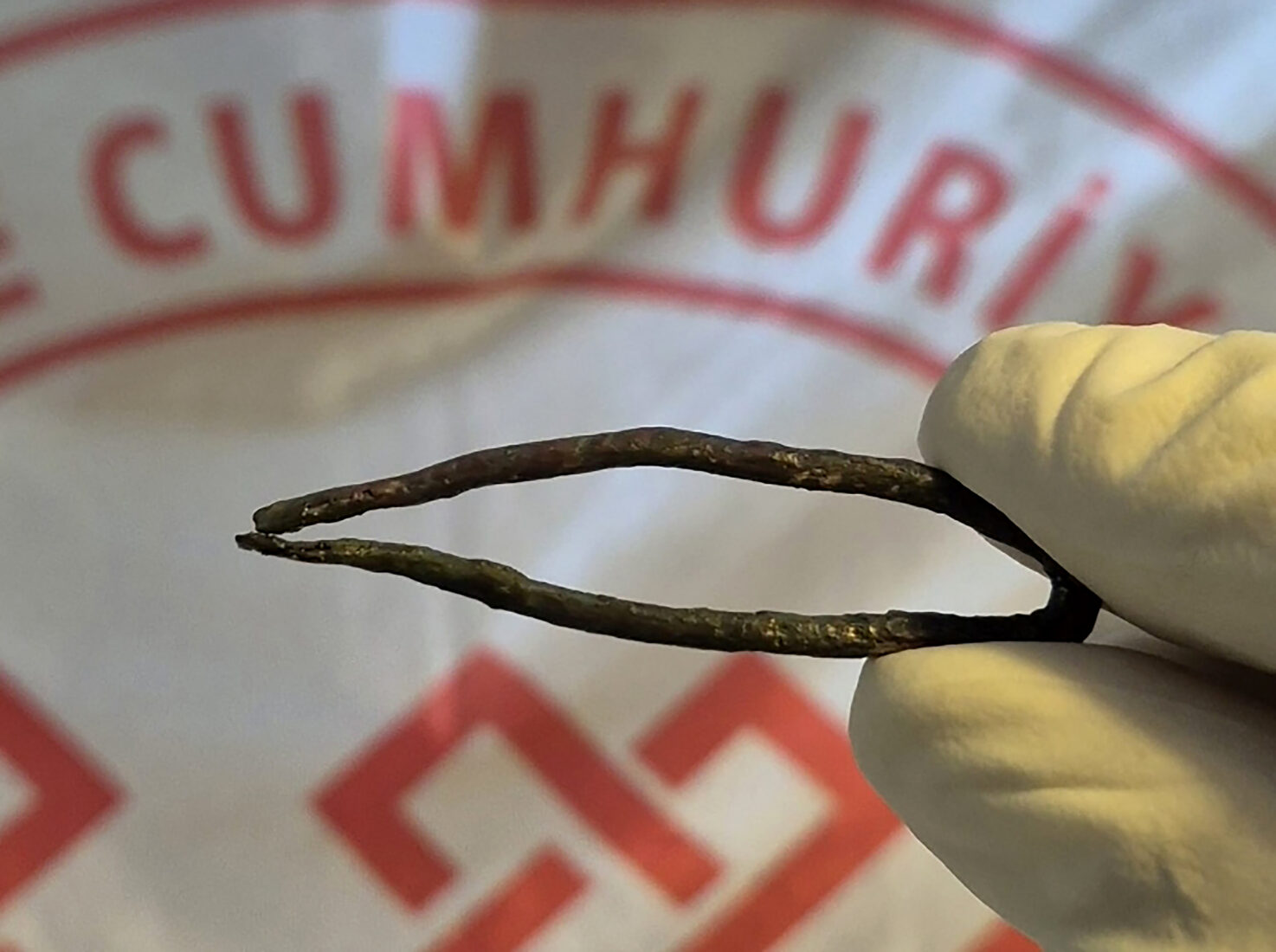
Another standout discovery is a pair of bronze tweezers found in a separate structure. The tool offers a glimpse into ancient grooming practices, shedding light on the period's aesthetic norms.
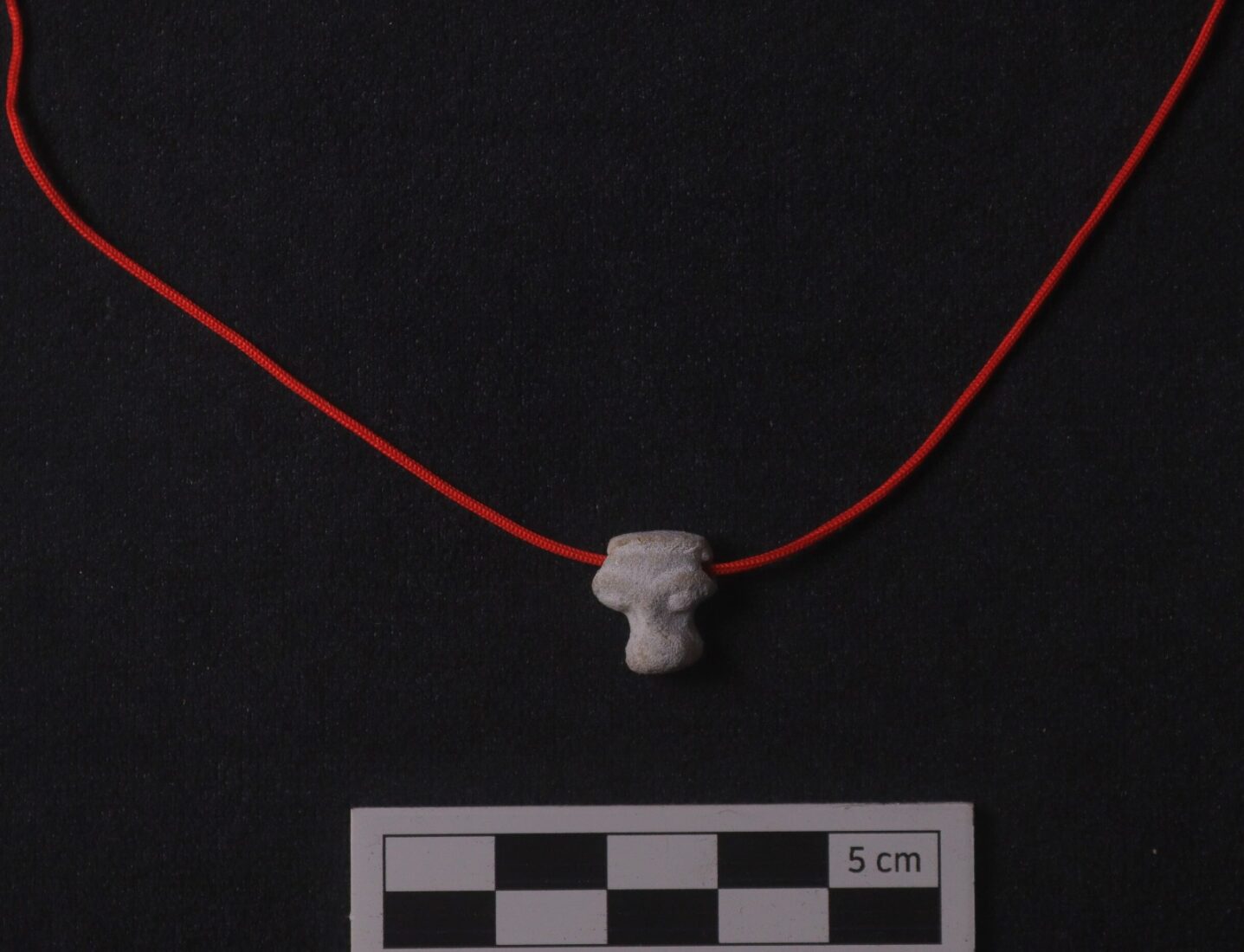
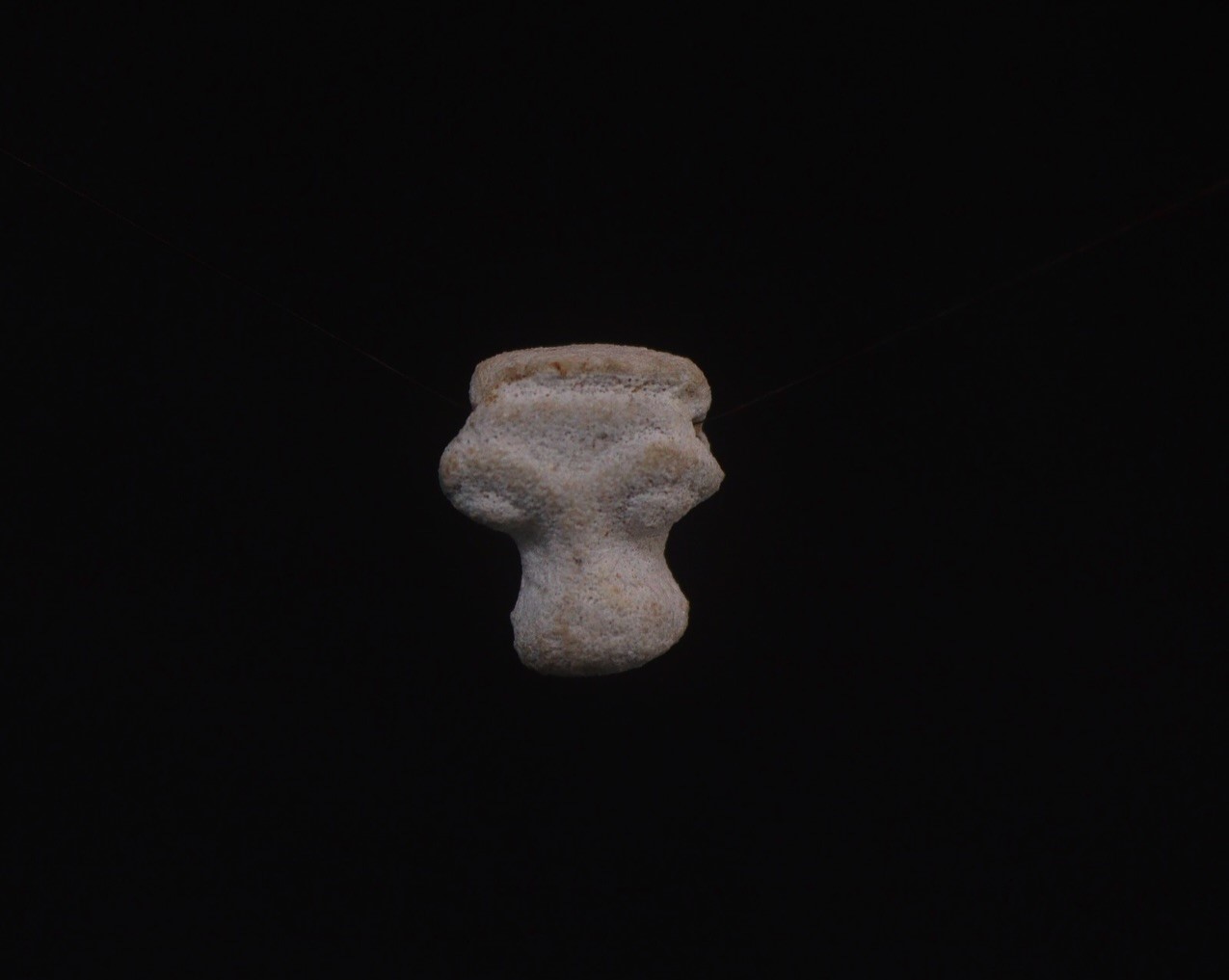
Excavations at Tavsanli Hoyuk, which has a history stretching back 8,100 years, have previously uncovered traces of a catastrophic attack from 3,700 years ago. Among the findings were charred remains of two individuals, along with rare carbonized brain and skin tissue.
Other discoveries include a cylinder seal, dagger, copper and silver residues, ceramics, and textile tools, all providing a comprehensive view of life in the ancient settlement.
The ongoing work at Tavsanli Hoyuk continues to unlock the mysteries of Türkiye's ancient civilizations, showcasing the region’s role in the Late Bronze Age cultural landscape.
As the excavation progresses, it promises further revelations that could redefine our understanding of the era.